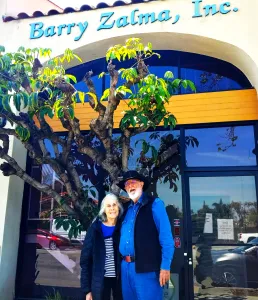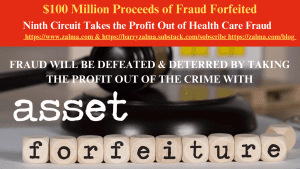Nevada Appears to Ignore SCOTUS on Punitive Damages

Post 4853
See the full video at https://rumble.com/v5anz95-nevada-appears-to-ignore-scotus-on-punitive-damages.html and at https://youtu.be/ua5yn4cu7lQ
Sandra Eskew, as administrator of her deceased husband Bill’s estate, sued Sierra Health and Life Insurance Company, LLC (SHL), for insurance bad faith after SHL determined that Bill’s preferred lung cancer treatment-proton beam radiation therapy- was not covered by his health insurance plan. Because SHL refused to cover proton therapy, Bill received an alternative treatment which damaged his esophagus, causing pain and suffering for the remainder of his life. Following trial, the jury awarded the estate $40 million in compensatory damages. After a second phase of trial on punitive damages, the jury awarded $160 million in punitive damages.
In Sierra Health And Life Insurance Company, Inc. v. Sandra Eskew, As Special Administrator Of The Estate Of William George Eskew, No. 85369, Supreme Court of Nevada (August 5, 2024) the Supreme Court resolved the issues raised by the insurer.
THE APPEAL
SHL appealed, arguing that the district court erred by denying its motion for judgment as a matter of law because Sandra failed to prove the elements of an insurance bad faith claim. SHL also asserted that the district court erred by denying its motion for a new trial or remittitur because attorney misconduct and the erroneous admission of prejudicial evidence caused the jury to return a verdict based on passion and prejudice.
COVENANT OF GOOD FAITH & FAIR DEALING
It is well established within Nevada that every contract imposes upon the contracting parties the duty of good faith and fair dealing. To establish insurance bad faith, a plaintiff must show that the insurer had no reasonable basis for disputing coverage, and that the insurer knew or recklessly disregarded the fact that there was no reasonable basis for disputing coverage. A judgment will not be overturned if the jury’s verdict that an insurer acted in bad faith is supported by substantial evidence.
SHL relied on its parent company, UnitedHealthcare, program which stated that proton therapy was not medically necessary to treat lung cancer. SHL also argued that their policy was reasonable because it was consistent with the policies of other major U.S. insurers, and there is no Nevada case law stating that proton therapy must be covered.
To the contrary, it is the role of the jury to decide whether coverage under Bill’s contract was subject to reasonable disagreement. Substantial evidence was presented to the jury from which it could conclude that SHL engaged in bad faith by denying Bill’s claim as not medically necessary when it was medically necessary and SHL knew or recklessly disregarded this fact.
The jury saw evidence that SHL relied primarily on the medical policy and did not conduct a thorough investigation of Bill’s specific needs, in determining that proton therapy was not medically necessary for Bill. Overall, there was substantial evidence supporting the jury’s verdict that SHL knowingly or recklessly denied coverage without a reasonable basis. The Supreme Court concluded that there was substantial clear and convincing evidence from which the jury could find that SHL acted with oppression.
The insurer not only knew the claimant was in dire need of benefits, but also had reason to know that it was probable that the claimant would suffer unjust hardship if deprived of those benefits. A finding of oppression was amply justified and concluded punitive damages were appropriate.
The Supreme Court also concluded that the high compensatory and punitive damages award does not evince a verdict based on passion and prejudice. The almost $200 million in compensatory and punitive damages merely reflects the jury’s valuation of the extensive pain and suffering experienced by Bill due to the denial of coverage and the level of blameworthiness of SHL’s conduct. Therefore, the Supreme Court concluded the district court did not abuse its discretion by denying the motion for a new trial, nor did it abuse its discretion by declining to remit compensatory and punitive damages. Accordingly, the Supreme Court affirmed the judgment.
Justice PICKERING, J., with whom Justice LEE agreed filed a concurring and dissenting opinion which argued that a total of $200,000,000 represents excessive damages appearing to have been given under the influence of passion or prejudice. Three errors appear especially serious and the punitive damages, which are four times the amount of the special damages, are excessive and should have been substantially remitted by the district court in accordance with the SCOTUS opinion See State Farm Mut. Auto. Ins. Co. v. Campbell, 538 U.S 408, 416-18 (2003).
In State Farm v. Campbell SCOTUS concluded that punitive damages should be limited, where there is a great amount of compensatory damages, should be limited to one time the compensatory damages. Since there was $40 million in compensatory the punitive damages should have been no more than $40 million rather than four times punitive damages. The Nevada Supreme Court was right in finding a need for bad faith damages and punitive damages but I agree with the concurrence and dissent that the Nevada Court allowed an excessive punitive damages award. Ms. Eskew will be required to pay income taxes to the US on the $160,000,000 in punitive damages and even after paying the lawyers should have enough money, invested carefully, to keep her well for the rest of her life. The punitive damages awarded was within the minimums stated in State Farm v. Campbell.
(c) 2024 Barry Zalma & ClaimSchool, Inc.
Please tell your friends and colleagues about this blog and the videos and let them subscribe to the blog and the videos.
Subscribe to my substack at https://barryzalma.substack.com/subscribe
Go to X @bzalma; Go to Newsbreak.com https://www.newsbreak.com/@c/1653419?s=01; Go to Barry Zalma videos at Rumble.com at https://rumble.com/account/content?type=all; Go to Barry Zalma on YouTube- https://www.youtube.com/channel/UCysiZklEtxZsSF9DfC0Expg
Go to the Insurance Claims Library – https://lnkd.in/gwEYk
Like this:
Loading…
Related
About Barry Zalma
An insurance coverage and claims handling author, consultant and expert witness with more than 48 years of practical and court room experience.


